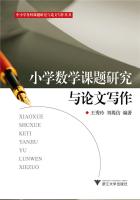01 The Different Ages of Man 人类的各个时代
In the Age of Gold, the world was first furnished with inhabitants. This was an age of innocence and happiness. Truth and right prevailed, thought not enforced by law, no was there any in authority to threaten or to punish. The earth brought forth all things necessary for man, without his labor in plowing or sowing. perpetual spring reigned, flowers sprang up without seed, the rivers flowed with milk and wine, and yellow honey distilled from the oaks.
The Silver Age came next, inferior to the golden. Jupiter shortened the spring, and divided the year into seasons. Then, first, men suffered the extremes of heat and cold, and houses became necessary. Crops would no longer grow without planting. This was a race of manly men, but insolent and impious.
Next to the Age of Silver came that of brass, more savage of temper and readier for the strife of arms, yet not altogether wicked.
Last came the hardest age and worst, of iron. Crime burst in like a flood; modesty, truth, and honor fled. The gifts of the earth were put only to nefarious uses. Fraud, violence, war at home and abroad were rife.
Jupiter, observing the condition of things, burned with anger, He summoned the gods to council. Jupiter set forth to the assembly the frightful condition of the earth, and announced his intention of destroying its inhabitants, and providing a new race, unlike the present, which should be worthier of life and more reverent toward the gods. Fearing lest a conflagration might set Heaven itself on fire, he proceeded to drown the world. Speedily the race of mean and their possessions, were swept away by the deluge.
Parnassus alone, of the mountains, overtopped the waves, and there Deucalion, son the Prometheus, and his wife Pyrrha, daughter of Epimetheus, found refuge—he a just man and she a faithful worshiper of the gods. Jupiter, remembering the harmless lives and pious demeanor of this pair, caused the waters to recede. Then Deucalion and Pyrrha, entering a temple defaced with slime, approached the enkindled altar and, falling prostrate, prayed for guidance and aid. The oracle answered, “Depart from the temple with head veiled and garments unbound, and cast behind you the bones of your mother.” They heard the words with astonishment. Pyrrha first broke silence: “We cannot obey; we dare not profane the remains of our parents.” They sought the woods. and revolved the oracle in their minds. At last Deucalion spoke: “Either my wit fails me or the command is one we may obey without impiety. The earth is the great parent of all; the stones are her bones; these we may cast behind us; this, I think, the oracle means.” They veiled their faces, unbound their garments, and, picking up stones, cast them behind them. The stones began to grow soft and to assume shape. By degrees they put on a rude resemblance to the human form. Those thrown by Deucalion became men; those by Pyrrha, women.
Vocabulary 词汇
inhabitant [in"h?bit?nt] n. 居民,居住者
innocence ["in?s?ns] n. 清白,无罪,天真无邪
authority [?:"θ?r?ti] n. 权威,权力,当局
perpetual [p?"pet?u?l, -tju-] adj. 永久的,四季开花的,不断的,无期限的
inferior [in"fi?ri?] adj. 下级的,差的;
n. 次品,下级
insolent ["ins?l?nt] adj. 无礼的,粗野的,傲慢的,无耻的
summon ["s?m?n] vt. 召唤,鼓起,振作
deluge ["delju:d?] n. 洪水,泛滥;
vt. 使泛滥,压倒
demeanor [di"mi:n?] n. 风度,举止,行为
oracle ["?r?kl, "?:-] n. 神谕,神谕处,预言,圣人
Practice
How many Ages does human experienced?
译文
黄金时代,地球上最初有了居民。这是一个天真无邪和幸福的时代。真理和正义主宰一切,但不是靠法律的约束,也没有什么权贵的恫吓和惩处。人们不用耕种,一切生活必需全可仰给予大地。春天永在,不用种子,地里也长出鲜花来;河里流的是奶和酒,以及从橡树蒸馏而来的黄澄澄的蜜糖。
接下来的是逊于黄金时代的白银时代。朱庇特缩短春天,把一年分为四季。于是人们首先尝到了酷暑严寒之苦,不得不找一个蔽身之所。要吃谷物就得耕作。这时的人类雄伟刚毅,但却骄横不虔。
白银时代之后就是青铜时代。人们的禀性更加粗野,动辄就要大兴干戈,但是还没有达到十恶不赦的地步。
最后到了最棘手和最糟糕的时代——黑铁时代。罪恶像洪水一样泛滥成灾,谦虚、真理和尊严逃得无影无踪,大地的赐予全被用去造孽。欺诈、暴力、对内对外的战争四处猖獗。
朱庇特见到这种情况怒不可遏。他召集众神商讨对策。在神祗大会上,朱庇特陈述了地球上不堪容忍的情况,并宣布了他要毁灭地上现在居民的意向,表示要另置新人。这种新人不同于现有的人,他们将更有生存的价值,对神祗也更加敬重。朱庇特唯恐用火烧会危及天宫本身,就决定用洪水淹没地球,转瞬间洪水就把地球上的人和他们的财物席卷而去。
在所有的山峰中,唯有帕尔纳索斯没有被洪水的浪滔所淹没,普罗米修斯的独生子丢卡利翁和他的妻子皮拉——厄庇墨透斯的女儿——就躲到这个山峰上去。丢卡利翁为人正直,他的妻子则虔诚敬神。朱庇特怜惜他们夫妻一生清白,品行端正,就斥令洪水退去。这时丢卡利翁和皮拉走进了一个溅满了泥浆的神庙里,在香火未燃的祭坛前,他俩俯身在地祈求神祗的指引和帮助。神谕指出说:“裹起头,松开衣带,出庙去,一路走一路将你们母亲的尸骨丢在身后。”这话使他们惊愕不已。皮拉首先打破了沉寂:“我们不能照着这个神谕办事;我们不敢亵渎父母的尸骨。”他们躲进树林,苦苦思索着神谕的含义。最后丢卡利翁说:“要不就是我发了昏,要不就是我们不犯逆忤罪也能执行神谕。大地是万物之母,石头就是她的尸骨。我们可以往身后扔石头,我想神谕说的就是这个意思。”他俩蒙住颜面,松开衣带,捡起石头朝身后扔去。这些石头开始变软,呈现形状,渐渐地带上了略似于人的状貌。丢卡利翁扔的石头变成了男人,皮拉扔的则成了女人。
练习
人类经过了几个时代?
Four, there are The Golden Age, The Silver Age,
The Brass Age, The Iron Age.
02 The Trojan War 特洛伊战争
At a wedding party Eris, the goddess of discord, threw a golden apple bearing the words “For the fairest!” Hera, Athena and Aphrodite, each wanting to get it for herself, were sent to Paris for judgment. A shepherd on Mt Ida, Paris gave the apple to Aphrodite because she had promised to obtain for him the love of the most beautiful woman in the world.
Paris was the son of Priam, the king of Troy. At his birth his mother Queen Hecuba dreamed of holding a piece of burning wood. So he was regarded as likely to bring destruction on the city, and was by chance exposed to the sun, wind and rain on MtIda. He was finally saved and brought up by the herdsmen there. Now acting on the instruction of Aphrodite, he went down the mountain to take part in the game held in Troy, and there so famous did he become that King Priam and Queen Hecuba received him joyfully back into the royal palace.
Soon he was sent to Greece at the head of a great team of boats. he went to Sparta, where, as Aphrodite had told him, the most beautiful woman of the time, Helen, lived. King Menelaus, Helen’s husband, generously received him but Paris returned his host’s kindness with no thanks. In the king’s absence he persuaded Helen to elope with him to Troy. To payback, Greek took up arms. The Trojan War broke out.
As the Greek ships gathered at the port of Aulis, no favoring wind blew up. A prophet told the commander of the expedition, Agamemnon, that he had to offer his daughter Iphigenia as a sacrifice to Artemis. Iphigenia was placed before the goddess’ altar but Artemis took her away at the last minute, putting a red deer in her place. Agamemnon’s wife Clytemnestra was greatly enraged at her husband’s cruelty.















